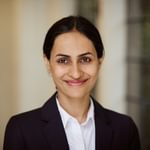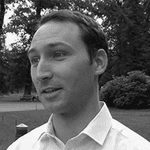Event Recording:
Local communities have an important role to play in the net zero transition, developing new models of collective living to both mitigate and adapt to climate change.
Cities in particular represent 70% of the worlds emissions and are expected to grow to 68% of the global population by 2050. This discussion in the Oxford Net Zero Series, hosted by the Oxford Martin School, will explore what it means for local communities to set out on a pathway to net zero.
Kaya Axelsson, Radhika Khosla, Nicole Yazon and Steve Smith will discuss what is required to instigate community-wide shifts to low carbon lifestyles as well as the community stakeholder processes needed to drive action from the bottom up and ensure that some are not left behind in the net zero transition. At a high level, we will review local communities’ challenges in measuring and reporting emissions data and opportunities to standardise data aggregation systems to better understand the collective mitigation potential of urban net zero transitions.

Kaya Axelsson
Net Zero Policy Engagement Fellow
Kaya Axelsson works as the net zero policy engagement fellow at the University of Oxford, jointly appointed by the Smith School of Enterprise and the Environment and the Environmental Change Institute. Kaya is currently working with the High Level Climate Champions team as a strategic Advisor to the youth fellowship of the Race to Zero campaign.
From 2019-2020 Kaya served as Vice-President of the Oxford University Student Union where she successfully advocated for the university to write a new sustainability strategy with net zero carbon and biodiversity net gain targets. In this role Kaya also negotiated a motion on net zero engagement and fossil fuel divestment across Oxford’s endowment.
As a climate activist from the Pacific Northwest Kaya was involved in grassroots blockades to prevent the expansion of fossil fuel infrastructure through native lands. These experiences led her to apply to a masters at Oxford to map the energy system more widely and seek a ‘seat at the table’ for young activists in accelerating the post-carbon transition. Kaya now holds an MPhil in Comparative Government from the University of Oxford, earning distinction for her thesis on the success of politically unlikely Renewable Energy Coalitions. Kaya has worked for over 10 years in nonprofits and political campaigns for social and environmental justice.
Kaya is guided by the constant reminder that our actions in climate advocacy, whether through reform-based engagement or climate direct action, must measure against those losing their lives and livelihoods to the climate crisis. She consults regularly to support organizations seeking to adopt more sustainable and inclusive systems, and is currently helping to convene dialogues between young climate entrepreneurs and researchers, with high-level industry leaders to drive more ambition in the global Race to Zero.

Dr Radhika Khosla
Lead Researcher, Oxford Martin Programme on the Future of Cooling
Dr Radhika Khosla is Research Director of the Oxford India Centre for Sustainable Development and Associate Professor at the Smith School of Enterprise and Environment at the University of Oxford. She works on examining the productive tensions between urban transitions, energy services consumption and climate change, with a focus on developing country cities.
Radhika is also the Lead Investigator of the Oxford Martin School's interdisciplinary and multi-country programme on the Future of Cooling and she leads the climate change research under the India-UK Global Partnership Programme on Development. She is a contributing author to the sixth assessment report of the Intergovernmental Panel on Climate Change (IPCC) and lead author of the UNEP Emissions Gap Report (2020). Her other academic affiliations are at University of Pennsylvania, and the Centre for Policy Research, New Delhi. Radhika serves on government policy committees, and boards of journals and book presses. She holds a PhD in the Geophysical Sciences from the University of Chicago and an undergraduate and master’s degrees in Physics from the University of Oxford.

Nicole Yazon
MBA + MSc in Environmental Change and Management
Nicole is an Energy professional with over 8 years of experience in Southeast Asia and the UK as a business development lead, process engineer, researcher, and strategy consultant. Her career mission is to harness her skills and experience in energy, environmental management, and business to find strategic, impactful solutions for climate change and the energy transition.
At Oxford, Nicole was a Pershing Square Fellow from 2018 to 2020, Co-Chair of the Oxford Business Network for Climate and Energy, and now holds a dual-degree MBA and MSc in Environmental Change and Management. Her MSc dissertation ‘Building Net-Zero Cities’ focused on developing a method and tool to examine the effectiveness of climate mitigation policies in 15 megacities, enabling providing city governments with insights on policy effectiveness and recommendations to improve their measurement, reporting, and verification (MRV) practices.

Dr Steve Smith
Executive Director, Oxford Net Zero
Dr Steve Smith joins the Smith School of Enterprise and the Environment from the UK Department for Business, Energy and Industrial Strategy (BEIS) where he co-led the Climate Science Team for two years. He played a key role in the legislation of the Net Zero emissions target last year, and on developing the Government's approach to greenhouse gas removal. As well as advising ministers and policy teams he oversaw several areas of climate research, including the Met Office Hadley Centre Climate Programme, the Greenhouse Gas Removal Programme co-funded with UKRI, and understanding of carbon sources and sinks on land for the UK emissions inventory.
Before joining BEIS, Steve was Head of Science at the Committee on Climate Change. There he was involved in setting the UK's 2050 target and carbon budgets, as well as starting up the committee's work on climate adaptation. He gained a PhD in atmospheric physics from Imperial College London after studying Physics at Oxford. He is a fellow of the Royal Meteorological Society and of the Cambridge Centre for Science and Policy.
Keep in touch
If you found this page useful, sign up to our monthly digest of the latest news and events
Subscribe